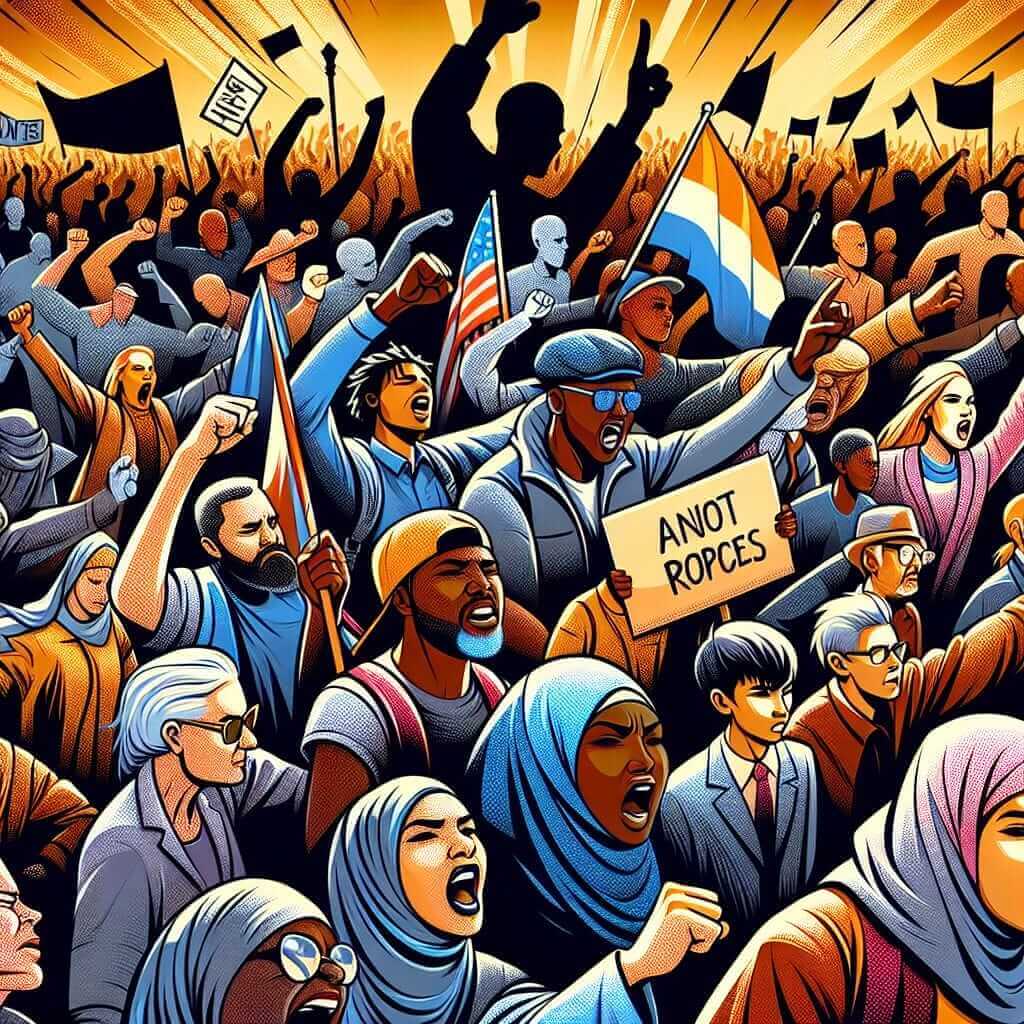The intersection of social justice movements and their influence on legislation is a recurring theme in IELTS Writing Task 2, particularly in the realm of social and political discourse. This topic delves into how collective action can instigate legislative changes, impacting societal norms and legal frameworks. Understanding this dynamic is crucial not only for crafting compelling IELTS essays but also for engaging in informed discussions on contemporary issues.
This comprehensive guide will equip you with the necessary tools to analyze and respond effectively to IELTS Writing Task 2 questions related to this theme. We’ll examine potential essay prompts, dissect a sample question, provide a model essay, and offer valuable vocabulary and writing tips.
Sample IELTS Writing Task 2 Questions
Let’s start by looking at some potential essay questions that revolve around the impact of social justice movements on legislation:
- To what extent do you agree or disagree that social justice movements are the primary drivers of legislative change?
- Discuss the positive and negative impacts of social justice movements on the legislative process.
- Some argue that social media has amplified the influence of social justice movements on lawmaking. What is your opinion?
Analyzing a Sample Question and Crafting a Model Essay
Chosen Question:
To what extent do you agree or disagree that social justice movements are the primary drivers of legislative change?
Question Analysis:
This question requires you to take a stance on the role of social justice movements in shaping legislation. You need to assess whether they are the “primary drivers” or if other factors play a more significant role.
Model Essay:
Social justice movements, characterized by collective action aimed at addressing systemic inequalities, have undeniably shaped the course of history. While some argue that these movements are the primary catalysts for legislative change, others posit that their influence is often overstated. This essay will argue that although social justice movements play a crucial role, they are not the sole drivers of legal reform, with political will and economic factors also holding significant sway.
Advocates for the paramount importance of social justice movements point to historical examples such as the Civil Rights Movement in the United States or the anti-apartheid struggle in South Africa. These movements, through sustained protests, civil disobedience, and public awareness campaigns, successfully pressured governments to dismantle discriminatory laws and enact landmark legislation. The undeniable impact of these movements underscores their potential to effect profound societal change.
However, it is crucial to acknowledge that legislative change is rarely a linear process driven solely by grassroots activism. Political will, often influenced by electoral calculations and the agendas of those in power, plays a pivotal role. Governments may be more inclined to enact legislation aligned with the demands of powerful interest groups or those that enhance their chances of re-election. For instance, environmental regulations may face resistance from industry lobbies despite widespread public support for environmental protection.
Furthermore, economic considerations often intersect with social justice concerns, impacting the feasibility and implementation of legislative reforms. Policies addressing income inequality, for example, might be met with resistance due to concerns about their potential impact on economic growth or government budgets. The interplay of social, political, and economic factors highlights the complex dynamics that shape legislative change.
In conclusion, while social justice movements undoubtedly exert significant pressure on governments to address societal injustices and enact progressive legislation, it is an oversimplification to consider them the primary drivers of change. Political will and economic realities often act as mediating forces, shaping the trajectory and ultimate impact of social movements on the legislative landscape. A nuanced understanding of these complexities is essential for fostering meaningful and sustainable social progress.
Word count: 322 words

Writing Tips and Vocabulary:
- Structure: Follow a clear essay structure (introduction, body paragraphs, conclusion) to present a cohesive and well-organized argument.
- Vocabulary: Utilize a wide range of vocabulary related to:
- Social Justice: Advocacy, equality, human rights, discrimination, systemic bias, social change, grassroots movements, activism
- Legislation: Legal framework, policy reform, enact laws, bills, amendments, judicial system, political process
- Impact: Influence, consequences, ramifications, catalyst, driving force, transformative, instrumental
- Grammar: Use a variety of grammatical structures, including complex sentences and transition words, to enhance the flow and clarity of your writing.
- Examples: Support your arguments with relevant historical or contemporary examples to demonstrate your understanding of the topic.
- Critical Thinking: Provide a balanced analysis by acknowledging different perspectives and complexities within the issue.
Key Vocabulary:
- Legislation (n.) /ˌlej.ɪsˈleɪ.ʃən/ : The act of making or enacting laws.
- Social Justice (n.) /ˈsoʊ.ʃəl ˈdʒʌs.tɪs/ : The fair and just treatment of all people in society.
- Advocacy (n.) /ˈæd.və.kə.si/ : Public support for or recommendation of a particular cause or policy.
- Grassroots (adj.) /ˈɡræs.ruːts/ : Relating to or originating among the common people.
- Systemic (adj.) /sɪˈstem.ɪk/ : Relating to a system, especially as opposed to a particular part.
- Dismantle (v.) /dɪsˈmæn.təl/ : To take apart or break down a system or structure.
- Landmark (adj.) /ˈlænd.mɑːrk/ : Important and likely to have a lasting effect.
- Electoral (adj.) /iˈlek.tɚ.əl/ : Relating to elections.
- Lobby (v.) /ˈlɑː.bi/ : To try to influence government officials to make decisions for or against something.
- Feasibility (n.) /ˌfiː.zəˈbɪl.ə.ti/ : The possibility that something can be made, done, or achieved.
Conclusion
Mastering the art of writing about the impact of social justice movements on legislation is an invaluable skill for IELTS success. By understanding the nuances of the topic, utilizing relevant vocabulary, and structuring your essays effectively, you can confidently tackle any related question. Remember to analyze the question carefully, formulate a clear stance, and support your arguments with evidence and examples.
Keep practicing with different essay prompts and continue expanding your knowledge of social justice movements and their historical and contemporary significance.